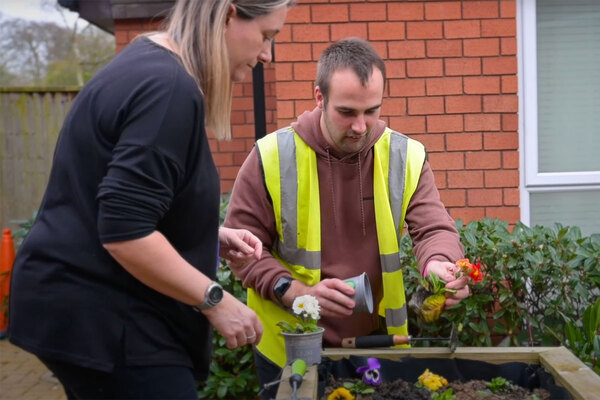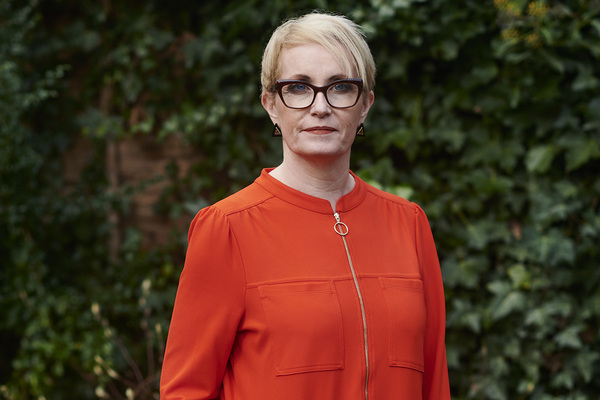 Chan Kataria OBE
Chan Kataria OBEChan is the Group Chief Executive of emh group, a housing and care group with a turnover of £125m, 1,100 employees and over 20,000 homes ...more
Social care must seize the moment to take centre stage
The coronavirus crisis has focused government minds on the care sector. We must make sure we take this opportunity to make lasting changes, says Chan Kataria
The term ‘unprecedented times’ is overused but I can’t think of a better way to describe the current state of affairs. The global impact of this pandemic has been horrific and the death toll beyond comprehension.
A quarter of the workforce has been furloughed, new Universal Credit claims have hit the two million mark and we are on the brink of the biggest recession ever to hit our shores. Both the Office for Budget Responsibility and the Bank of England suggest that the economy will drop by around a third in this quarter and by as much as 15% over the whole year. Predictions of a V-shaped recovery are starting to look optimistic.
As is so often the case, casualties are concentrated in the communities that housing associations serve.
You could be forgiven for thinking this is yet another gloomy analysis of the dire impact of the pandemic. Not so. Many, many positive stories have come out over the past few weeks and we need to capture these.
For a start, we have seen significant supply-side interventions to save jobs and livelihoods. Such mammoth stimulus packages are unknown in modern times. We have seen the virtual ending of rough sleeping on our streets. We have seen a significant reduction in road traffic, and the positive impact that has had on our environment. We have seen the mass mobilisation of people adjusting to home working with no apparent loss of productivity. Crucially, we have seen the much-needed appreciation of essential frontline workers in our society.
The approach to the social care market is a good case in point. I know from personal experience at EMH Group that care workers are the most dedicated people I have ever come across. They are passionate about caring for people and improving lives.
The care sector has been the poor relation for too long, characterised by underfunding, a lack of strategic planning and the absence of an integrated approach with other services. In this crisis, we have seen no co-ordination on issues such as testing and PPE.
However, things are changing. It is unfortunate that it should take a pandemic to achieve what we have been asking for over several decades, but in the past few weeks there has been a step change.
For a start, we have seen an injection of around £3bn to help local authorities address the challenges posed by coronavirus, including measures to protect the cash flow of care providers whose viability is threatened by increasing costs. In the context of ever smaller commissioning fees, this is to be welcomed.
A key ask of the sector for years has been an integrated approach to local health and care. This has eluded us for far too long. Yet, within a matter of weeks we have seen a co-ordinated approach on a range of issues, including the safe discharge from the NHS to social care settings.
Local resilience forums have been set up with joint collaborative working between agencies on matters such as resource allocation and the supply of relevant equipment. There are efforts to bring together the NHS, the armed forces and others to scale up the supply chain and improve speed and reliability in the delivery of essential items.
Some local authorities are setting up ‘provider hubs’ in their areas to offer professional advice and support to all care providers in their fight against COVID-19. Crucially, the hub is a collecting point for key information and data in relation to care providers and care users.
“Over the past few weeks many mistakes have been made in relation to the care sector, not least in terms of testing and the supply of PPE”
In a sector that has faced long-term people shortages, there is a significant increase in the number of volunteers to the health and care sectors. Three-quarters of a million people have put themselves forward to play a vital role in saving and protecting lives. The government has set ambitions to attract 20,000 people into social care in the next three months, with involvement from ‘Skills for Care’ to make it easier for employers to access online induction training for staff.
After the current crisis has abated, publication of the Social Care Green Paper must be a key priority for this government. Failure to capitalise on the progress made so far would be a wasted opportunity.
Over the past few weeks many mistakes have been made in relation to the care sector, not least in terms of testing and the supply of PPE. However, we are beginning to see what is possible when there is a will and strategic focus. In this, as in many other areas, I really hope we do not revert to the ‘old normal’.
Chan Kataria, chief executive, EMH Group











